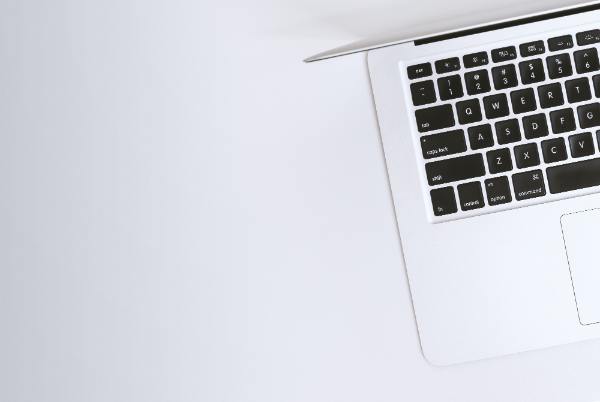Given the high cost of Macs, it makes sense that many Mac users would want to delay replacing them as long as possible. So how long do Macs last? The typical lifespan of a MacBook is three to six years, though many users reported that their devices have lasted much longer. Read this article to learn how to prolong the life of your MacBooks.
How Long Do Macs Last
A properly maintained MacBook Pro should have an average lifespan of 7.2 years, according to experts. However, many people exchange their MacBook Pro for a new one after five years. Whether you use your laptop frequently or not will greatly affect how long a MacBook Pro lasts before you need to upgrade.
What Affects The Lifespan Of A MacBook
MacOS Updates
There are numerous perspectives on how long MacBook Pros (or any other Mac) last. How long your Mac will be able to run a supported version of the OS is the first and possibly most significant factor.
Monterey is the most recent version of macOS. Given Apple’s recent track record, that will be supported for at least three years after it is replaced. Therefore, if your Mac can upgrade to Monterey, you can anticipate another three years of software updates.
Here is the list:
- MacBook models from early 2016 or later
- MacBook Air models from 2015 or later
- MacBook Pro models from 2015 or later
- Mac mini models from 2014 or later
- iMac models from late 2015 or later
- iMac Pro from 2017
- Mac Pro models from 2013 or later
The typical MacBook Pro lasts between five and eight years, claims MacWorld. The average lifespan of a Mac is between eight and eleven years, depending on the model, based solely on OS updates.
Compatible Apps
The comfort level at which your Mac can run the required apps is the next factor to take into account. If you’re currently using an older version of an application and want to switch to a more recent one, you’ll need to think about whether the newer version will function properly with the OS your Mac is currently using and the hardware constraints of the Mac itself.
It’s impossible to give precise advice because this, of course, varies greatly between applications.
One thing to keep in mind, though, is that you’ll need to make sure the app is 64-bit if you’re still using older apps and want to upgrade to the newest OS version. If it’s 32-bit, you’ll need to update it because it won’t work.

Hardware
The average lifespan of Apple hardware is much higher than that of products from rival companies. Many people still use Macs that are 10 or even 20 years old. And a few are even older than that.
On the other hand, Apple products are notoriously difficult to repair or upgrade and typically need to be sent to Apple or taken to an authorized service facility.
Consequently, in order to determine how long a Mac lasts, we must determine how old a Mac can be and still be repaired in the event of a problem. After it stops selling a specific model of Mac, Apple promises to continue servicing them and making replacement parts available for another five years.
After that, the model is deemed “vintage.” Macs that are five to seven years old are considered vintage. When the required parts are available, Apple will repair these through licensed service providers.
“Obsolete” Macs are those that are over seven years old.” Obsolete Macs won’t be serviced by Apple or its service providers. Since they are no longer sold, Macs have a seven-year lifespan from a repair perspective.
Although some models have been available for much longer, Macs typically only have a year’s worth of sales. That indicates that a typical Mac has an eight-year hardware lifespan.
How Do You Know When It’s Time To Get A New Mac
You Can’t Run The Latest Version Of Marcos
Apple releases a new version of macOS every year in September or October. It can be run on the most recent Mac models. In other words, if your Mac is too old to upgrade to the most recent version of macOS, it will soon be rendered obsolete.
You Mac Constantly Lacks Free Space
Apps and other data are taking up more space as technology develops. If you have an old Machine with little storage, this leads to a never-ending struggle for free space.
If your MacBook has a 128GB or even 256GB drive, you probably constantly need to juggle files to free up space. This could entail whenever possible clearing up space on your Mac or adding additional storage via an external hard drive or other means.
Your Mac‘s Hardware Isn’t Powerful Enough
One component of your Mac that deteriorates with age is the storage disk. You won’t be able to run multiple apps at once if your RAM is insufficient, and an outdated CPU makes it difficult or impossible to perform tasks like editing 4K video. Additionally, you’ll see that older hardware performs worse overall.
MacBook batteries are another internal part that deteriorates over time. Rechargeable batteries can only be used so many times before they become “spent” and can no longer hold a charge.
MacOS will warn you when your battery is getting to the end of its life, and you can check your Cycle count on a MacBook whenever you like.
Your Mac Has Major Hardware Damage
When your MacBook sustains significant physical damage, you obviously need to replace it. Maybe you dropped it and cracked the screen or slammed the screen into some debris.
A long list of minor problems can easily turn into a major problem as well, barring a major hardware catastrophe. In many ways, an old computer is similar to an old car.
A few odd problems are tolerable as long as they don’t interfere with your ability to use them properly, but eventually, something significant will go wrong, and you’ll have to choose between fixing it and upgrading.
Your Mac Experiences Frequent Software Issues
Additionally, software problems may be a sign of an old Mac. You might frequently encounter OS freezes where nothing is responsive. Visual glitches and sporadic shutdowns are two additional frequent problems.
Make sure you have enough free space when you encounter these, as insufficient disk space can exacerbate these problems. Reinstalling macOS may be necessary if an SMC and PRAM reset doesn’t resolve the issue. Do this to see if your issues still exist.
The Timing Is Right For A New Mac
You might be prepared to replace your Mac, but you don’t necessarily need to buy a new one right away if you can get by with whatever problems it has. In that case, you ought to wait for the best opportunity to purchase a new Mac in order to maximize its benefits.
Most Mac computers are updated by Apple every year. Waiting a little longer to get a brand-new Machine that will last longer for the same price is preferable to buying one right before the new models are released.
Try This Before You Buy A New Mac
You may feel the need to switch to a new Mac for a number of reasons. One of them might be that your boot drive is running out of space. Applications seem to just keep getting bigger and bigger and taking up more space, despite your best efforts to optimize storage.
But there is an alternative. You can see exactly what’s using up all the space on your drive with CleanMyMac X, which can free up gigabytes of storage space.
The Space Lens in CleanMyMac X displays the files that are using the most space visually. Then you can decide which to delete or move to a different drive.
- CleanMyMac X can be downloaded, installed, and launched.
- selecting Space Lens in the sidebar.
- Press Scan.
- To view the files and folders inside a bubble, double-click it.
- Check the size of files and folders by hovering over them; the larger the bubble, the bigger the file or folder.
- To delete a file or folder, select it in the middle window and click Remove.
The Large & Old Files module in CleanMyMac X lists files that are taking up a lot of space or that have been sitting on your drive unopened for a while, allowing you to deal with them and quickly free up space. This feature helps you get rid of the clutter that slows down your computer.

